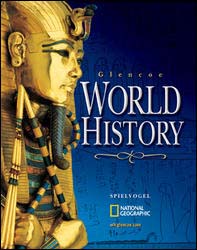Glencoe World HistoryChapter 14:
Crisis and Absolutism in Europe, 1550–1715Chapter OverviewsOut of the wars of the sixteenth century, absolutist rulers emerged in many parts of Europe, while England laid the groundwork for a constitutional monarchy. Art, literature, and political thought were heavily influenced by changes in the wake of the Reformation. Section 1 Europe in Crisis: The Wars of Religion
Wars between Catholics and Protestants plagued sixteenth-century Europe. Economic, social, and political forces all played a role. For nearly 40 years, the French Wars of Religion pitted Catholics against Protestant Huguenots. The violence finally ended in 1598 when Henry IV extended full political privileges to Huguenots while making Catholicism the official religion. Catholic Spain appeared to be at the height of its power. However, Philip II was bankrupting Spain with costly wars. Meanwhile, the United Provinces of the Netherlands, a heavily Protestant region of the Spanish Empire, emerged as a great power in its own right. The English monarch, Elizabeth, sought to placate both Protestants and Catholics at home while balancing the power of France and Spain. Hoping to restore Catholicism to power, Philip tried to invade England and met with disastrous results. Section 2 Social Crises, War, and Revolution
From 1560 to 1650, Europe was filled with economic and social crises. Witch-hunts were common. Religious disputes in Germany left over from the Peace of Augsburg led to the Thirty Years' War. The war evolved into a much larger European struggle. The Peace of Westphalia, which ended the war in 1648, split up the Holy Roman Empire and left German states free to choose their religion. France became the dominant nation in Europe. A year later, Charles I of England was executed by Oliver Cromwell, a military genius who led a revolt against the crown. The English Revolution was the latest battle in a struggle pitting Parliament against the monarchy. England's Protestant minority had also played a role. The monarchy was later restored, but the conflict simmered. In 1688, King James II fled to France and the Dutch king, William of Orange, took power with almost no bloodshed. In exchange for the crown, William and his wife, Mary, accepted a Bill of Rights, laying the groundwork for a constitutional monarchy. Section 3 Response to Crisis: Absolutism
In the wake of the crises of the seventeenth century, a number of powerful new rulers emerged in Europe. The French king, Louis XIV, is regarded as the best example of a seventeenth century absolutist ruler. Louis used all means at his disposal to keep power firmly in his own hands. In the absence of a centralized German state, Prussia and Austria emerged as great European powers. Prussia built the fourth-largest army in Europe. The Hapsburgs, formerly rulers of the Holy Roman Empire, built a loosely governed Austrian Empire that included today's Austria, the Czech Republic, and Hungary. The Russian state emerged in the fifteenth century. The Romanov dynasty established in 1613 produced a series of Russian absolutists. To make Russia a great power, the Romanov czar Peter the Great undertook military reforms, introduced western practices, and went to war with Sweden. Section 4 The World of European Culture
The Reformation's revival of religious values renewed artistic interest in matters of the spirit. The Mannerism movement abandoned many principles of the High Renaissance in an effort to convey the conflicting emotions brought on by religious turmoil. The baroque style tried to merge the ideals of Renaissance art with spiritual concerns. Many magnificent and highly detailed baroque churches and palaces were built. Writing and drama reached new heights in England and Spain. Two writers from this period, England's Shakespeare and Spain's Lope de Vega, are considered among the greatest writers ever. Political thought also evolved during this period. Thomas Hobbes argued in favor of absolutism. Hobbes's fellow Englishman, John Locke, countered that governments were formed by a contract to protect people's natural rights. Locke's ideas became important to both Americans and French in the eighteenth century.  | 

















